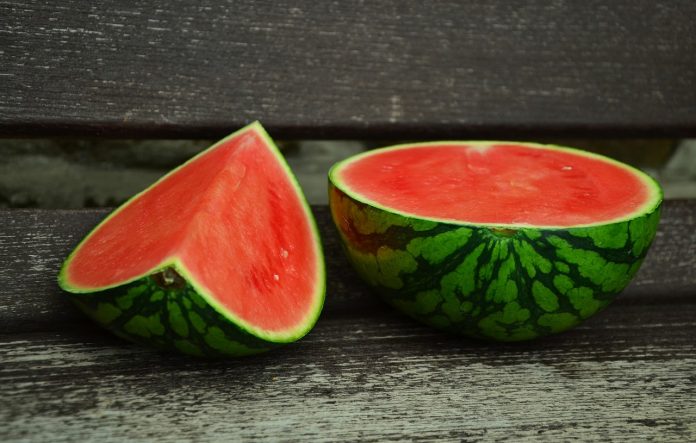
I am 24-year-old C 5-6 (cervical 5th and 6th vertebrae) quadriplegic and have a couple of questions. First, what is a normal body weight for a 6 foot 1 inch tall male with a medium frame?
Right after my injury, four and a half years ago, I was warned not to gain a bunch of weight due to the decrease in physical activity. Unfortunately, I took this warning to an extreme, slowly losing weight over a couple of years until I began to have a pressure sore problem. The pressure sore eventually needed surgery to fix, at which I weighed 116 pounds. While in the hospital I worked my way back up to 125. Two years later, I now stand at about 130. Is this a healthy weight for someone in my position?
I have another factor that plays a role in my struggles to maintain and gain weight. My appetite is not the best and as with most people with spinal cord injuries, regularity is a problem. When I get constipated and the bloated feeling that comes with it, I don’t feel like eating. To help avoid constipation I try to maintain a high fiber diet, eating lots of whole grains, bran, fruits, vegetables, and legumes. Some sources I’ve found say that dairy products and meats tend to be constipating, so I’ve cut back on milk, cheese, hamburger, steak, chicken and other meat and dairy products. Now I wonder if I’m getting enough protein and calcium. I heard once that skim milk is less constipating than 2%, is that true?
In closing, if I am unhealthful weight, is there a way to gain weight that is not just a bunch of fat, given the fact that I can’t exercise to build muscle like an able-bodied person? Thanks for your time.
Thanks for asking some good questions about people with quadriplegia.
I have searched for nutritional assessment tools to use with spinal cord injuries, but haven’t found any yet. It seems reasonable that you should weigh the same as an able-bodied person of the same vertical height. So at 6’1″, you should weight 170 – 186 pounds. With a medium frame, you should weight in the middle of this range or around 178. Check out your data by trying the Healthy Body Calculator at my site. If you include only very light activity hours, it would be close to your calorie needs as a quad. What did you weight before you were injured? Perhaps that is “healthy” weight for you?
The warning not to gain weight is sound because of decreased physical activity for quads. Also, your risk for heart disease, cancer, and stroke would also increase if you gained a lot of weight the same as an able-bodied person. However, you went the other direction and you are underweight now.
Ouch, that bed sore sounded painful. Muscle and fat overlay your skeletal system and cushion your bones from causing pressure sores. Infrequent movement with constant pressure on your skeletal system at points where your bones stick out could cause pressure sores even if you were at a healthy body weight. During the day, you need to periodically be shifted to different positions so the pressure is not constantly on your tailbone or hips and elbows. Also, passive massage of pressure points (back of the head, shoulder blades, hips, tailbone, elbows, and heels) can help to improve circulation. I would suggest you contact your physical therapist for specific suggestions as pressure sores are difficult to heal and in the extreme need surgical remedies.
To improve your appetite, I would suggest regular meals and snacks. I assume someone else is assisting with food preparation. Ask them to prepare your favorite foods. If you don’t have a problem with alcohol, a glass of wine can help stimulate a person’s appetite before an evening meal. If you feel full quickly, you need more calorie concentrated foods and possibly should consider a supplement. Even a glass of Instant Breakfast, Sustacal or Ensure would help add the balanced nutrition you need between meals. At meals, add margarine to your potatoes, rice, pasta, bread, and vegetables as well as switch to whole milk instead of low fat or skim. For now, forget about fat as you need calories and to gain weight. FYI, exercise, even passive stretching (range of motion) can help stimulate your appetite too.
Basically, stool is mostly food that your body can’t digest i.e. fiber. So when you decreased your food intake to lose weight, you also decreased the amount of stool passing through your intestines. Your switch to whole wheat bread, whole grain cereals, fresh fruits, vegetables is the recommendation for constipation. Remember to drink enough water as some fiber (insoluble) absorbs fluid in the intestinal tract and swells to act like Roto-Rooter. Usually, fiber stimulates the peristaltic movement of your intestines and speeds up the time it takes to traverse your intestines. Again, exercise, even passive exercises, can stimulate the intestines to work faster.
Unless you have an allergic reaction (vomiting, diarrhea, cramping, rashes) to specific foods, I would not suggest you cut out any food as you are cutting out valuable nutrients. Some of the foods you have cut out happen to be the best sources of particular nutrients i.e. milk & cheese (calcium, riboflavin, vitamin D, vitamin B 12), hamburger, steak chicken and other meat (protein, iron, vitamin B 12, zinc). These foods do not necessarily cause constipation, but bananas, apples, rice, and tea can. Do you eat lots of these foods?
No skim milk is not less constipating than low fat (2%) milk. In fact, milk is not considered to be a constipating food.
To add weight that is more muscle than fat, I would recommend you contact a physical therapist for recommendations on passive exercises that your caregiver can provide daily. I think that regular exercise would help a lot to reduce pressure sores, constipation and support adding more muscle than fat while preventing muscle contractures (shortening of muscles due to inactivity).
Lastly, why not talk to a Registered Dietitian who could plan healthy meals for weight gain while including your food preferences?



